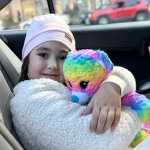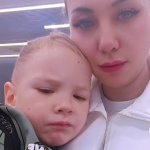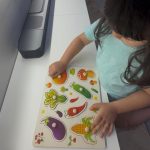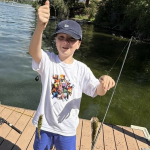How Do Autistic Children Play with Other Kids?
The presence of a child with autism in a group of children raises many questions among the parents of the other children. Myths and prejudices about autistic children have no basis. Autistic children are often feared, avoided, or people simply don’t know how to behave around them. This can be traumatic for both the child and their parents. In reality, autistic children can play and interact with others in different ways, depending on their individual characteristics and the level of their social skills development.
Parents or educators should consider how to most effectively build relationships between the autistic child and their peers. Interaction experience is crucial for both children with autism and typically developing children. For the former, it provides new experiences, speech development, and emotional reactions, while for the latter, it is essential for the development of empathy and tolerance.
How Can Autistic Children Play with Other Children?
- Individual interests: Autistic children often have specific interests and hobbies. They may seek out friends who share their interests or find ways to incorporate their passions into group play.
- Structured play: Some autistic children may prefer structured or organized games with clear rules and roles. This can help them feel more confident.
- Games with visual supports: Using visual schedules or pictures can help autistic children better understand how to play and interact in games.
- Unconventional methods of interaction: Autistic children may use non-standard ways of communicating and interacting, such as playing with models or creating their own rules for play.
- Need for calm: In environments where things become too loud or sensory stimuli are overwhelming, autistic children may prefer playing in quieter settings or resting in a calm space.
- Team games: Autistic children may face difficulties in understanding social cues and interacting in team games, but with the right support and understanding from other children, they can successfully participate.
It is important to remember that every autistic child is unique in their abilities and characteristics, but each one deserves communication and interaction with their peers. Parents can help the autistic child by selecting games they might enjoy.
Games for Autistic Children
Games that might appeal to autistic children often depend on their individual interests, sensitivity to sensory stimuli, and level of social skills.
- Games with fixed rules: Children with autism and ASD may prefer games with clear and predictable rules, such as board games or card games.
- Games with visual elements: Games that include visual elements or instructions can be engaging. For example, puzzles, board games with pictures, or building blocks can help develop visual-spatial skills.
- Interest-based games: Autistic children may show a special interest in certain topics or objects, such as cars, dinosaurs, space, etc.
- Sensory games: Games that involve sensory stimuli, such as playing with sand, clay, water, or textured toys, can be appealing.
- Role-playing games: Although some autistic children may have difficulties with role-playing games, others may enjoy them, especially if these games involve their favorite scenarios or characters.
- Strategy games: Games that require planning and strategic thinking may be attractive to autistic children who enjoy problem-solving and thinking several steps ahead.
Stem Cell Therapy: The Best Correction for Autism
To give their autistic child the best possible development, parents are often willing to try everything – including diets, therapy with psychologists, and medication. When used together, these methods can provide positive results. However, there are other effective forms of autism correction, such as stem cell transplantation. Thanks to cell therapy, the process of neural regeneration in the brain can be triggered. After the therapy, the child gets a significant boost to their development, improving existing skills and acquiring new ones.
We invite you to consult with the best specialists at the Mardaleishvili Medical Center!
Autism Treatment Center Videos
Autism treatment with own stem cells
Cord blood association congress
International Quality Crown
Autism Treatment Reviews
Autism treatment with own stem cells
The story of Alessandro (6 years old)
Autism Patient Testimonial - Stem Cell Treatment
Clients Testimonials

Lidiya — Elina’s mother Read More

Anna – Sasha’s mother Read More

Amirkhon’s father — Tokhir Read More

Dilana’s mother Read More

Irina and Stefan – Ilya’s parents Read More












